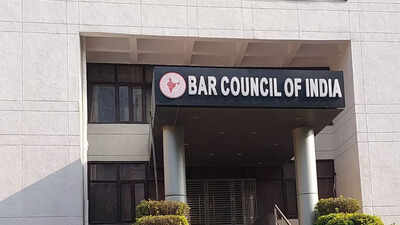Harvard and its A story: Why professors are reluctant to give anything less than perfection

There was a time when earning an ‘A’ from Harvard meant brushing shoulders with academic greatness, a mark that distinguished the extraordinary from the accomplished. Today, however, that distinction seems blurred. According to a report by Harvard’s Office of Undergraduate Education, nearly 60% of all grades awarded at Harvard College are A’s, up from 40% a decade ago and less than 25% twenty years ago.The question that now grips the academic conscience is unsettling: Has Harvard, the emblem of intellectual rigour, fallen prey to grade inflation? Or is it merely reflecting a shifting definition of success in an age when excellence has been universalized?
The quiet rise of an ‘A’ nation
The trend, while subtle at first, has crept into the system like an unacknowledged addiction. For years, administrators and faculty at elite universities have expressed quiet discomfort about the erosion of grading standards. But at Harvard, a place synonymous with prestige, the issue is now glaring.Amanda Claybaugh, Harvard’s Dean of Undergraduate Education and author of the report, minced no words. “Current practices are not only failing to perform the key functions of grading; they are also damaging the academic culture of the college more generally,” she wrote in a report, as quoted by Bloomberg. Her words hit at the heart of the dilemma, grading was once a measure of distinction, not diplomacy.The numbers themselves tell a story of shifting academic values. Two decades ago, less than one in four Harvard students walked away with an A. Today, the majority do. The inflation curve has risen steadily, echoing a quiet anxiety among professors: What happens when everyone is exceptional?
Fear, fairness, and faculty pressure
The report doesn’t point fingers blindly. It highlights a complex ecosystem where faculty anxiety has become a silent driver of inflated grades. Administrators, too, have inadvertently fed this culture. In an era where mental health and inclusion dominate campus discourse, professors are urged to be “mindful” of students battling imposter syndrome or personal hardships. While well-intentioned, such guidance often translates into softened academic rigor, a subtle shift from challenge to compassion that may inadvertently dilute merit.Students, meanwhile, have learned to navigate this landscape with precision. The report reveals that Harvard undergraduates, while not the caricatured “snowflakes” of public imagination, pressure their professors for higher grades, sometimes successfully. In a hyper-competitive environment where GPA can dictate future careers, even the most self-assured students fear the ripple effect of a single ‘B’.
The culture of constant achievement
To understand Harvard’s grade inflation, one must also look at the broader cultural backdrop. Modern academia is no longer confined to intellectual pursuit; it’s entwined with employability, prestige, and perception. Employers, graduate schools, and even social media glorify flawless transcripts, pushing universities into a corner where high grades become a marketing tool as much as an academic outcome.Yet, there’s an irony here. When 60% of students receive A’s, the letter itself loses value, according to a report issued by Harvard’s Office of Undergraduate Education. The inflation doesn’t just elevate students; it flattens the meaning of achievement. It creates a culture where genuine excellence is camouflaged, and mediocrity masquerades as mastery.
The federal eye and the integrity debate
This debate isn’t just academic. The Trump administration’s investigations into Harvard and its broader efforts to reshape higher education have intensified scrutiny. Federal officials have urged universities to sign a compact that commits to “grade integrity” and “defensible standards.”While the politics of intervention remain contentious, the premise is simple: If grades no longer reflect rigor, how can they reflect reality? Harvard, the gold standard of education, now finds itself at a crossroads between autonomy and accountability.
The cost of kindness
Perhaps the most profound element in this debate is emotional, not institutional. Grade inflation, at its core, stems from empathy, professors reluctant to penalize struggling students, administrators attuned to mental health concerns, and students navigating an era of relentless self-comparison.But when kindness replaces candor, the entire academic ecosystem falters. Students graduate believing they’ve mastered subjects they barely understand; employers grow skeptical of credentials that once guaranteed brilliance. The result? A quiet erosion of trust between universities and the world that looks to them for excellence.
Rethinking excellence
Harvard’s predicament is not unique, it’s emblematic. Across Ivy League campuses, the same conversation unfolds in hushed tones: How do we balance compassion with credibility?For now, Harvard’s challenge is not just to restore the integrity of its grading system but to redefine what success means in an age that celebrates perfection by default.When every student earns an A, the letter stops being an achievement, it becomes a symptom. And perhaps, the real test for Harvard today is not in the grades it gives, but in the standards it chooses to defend.






